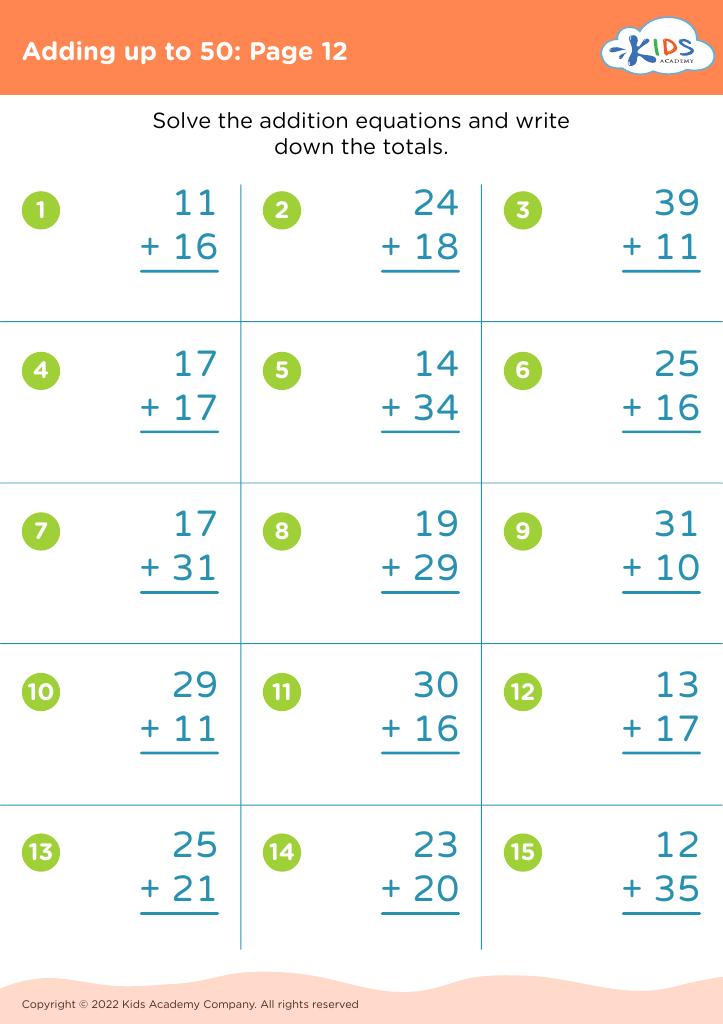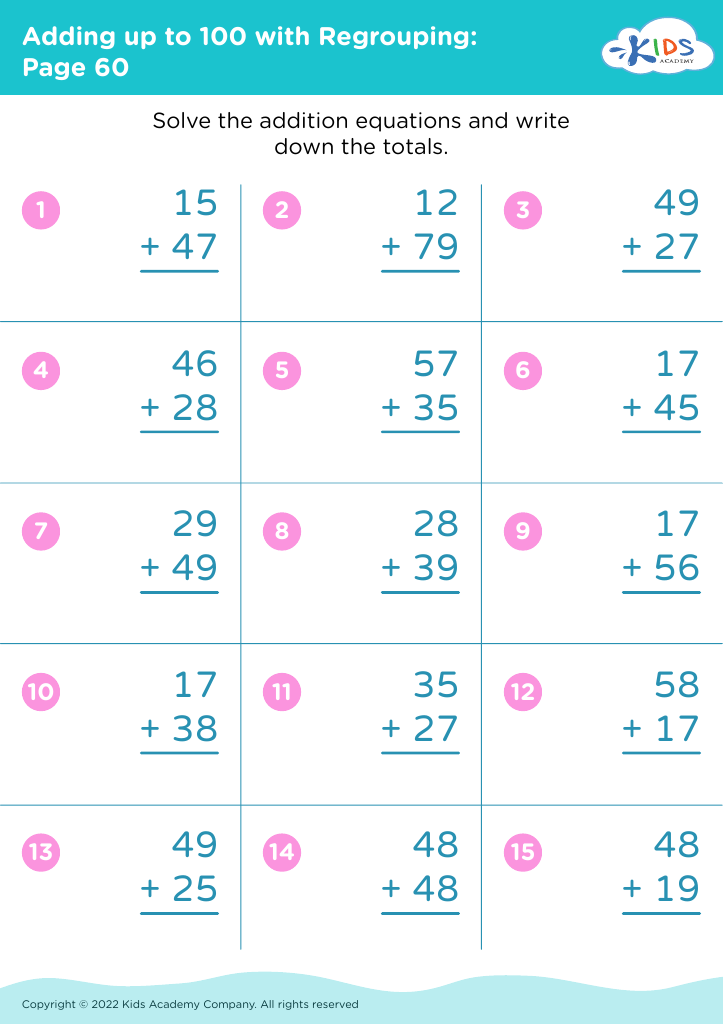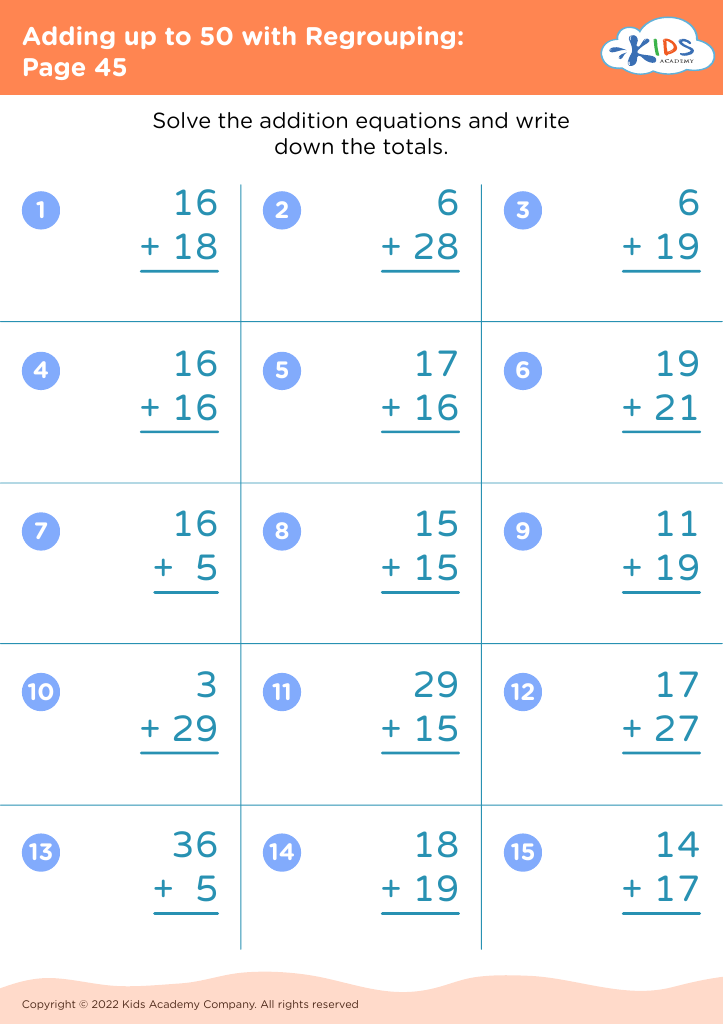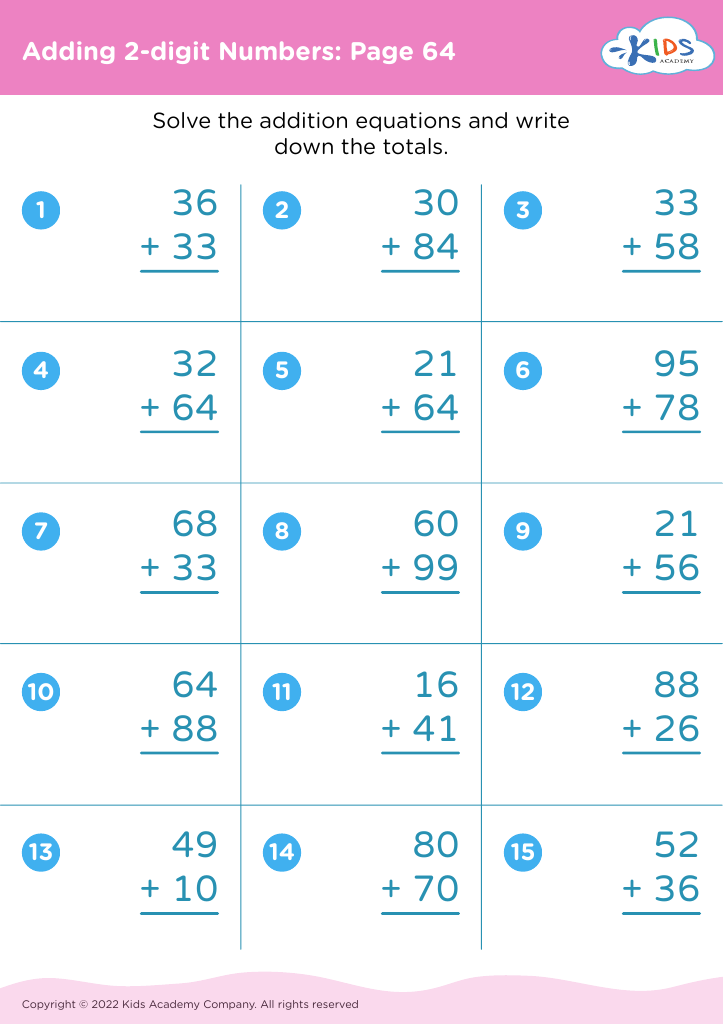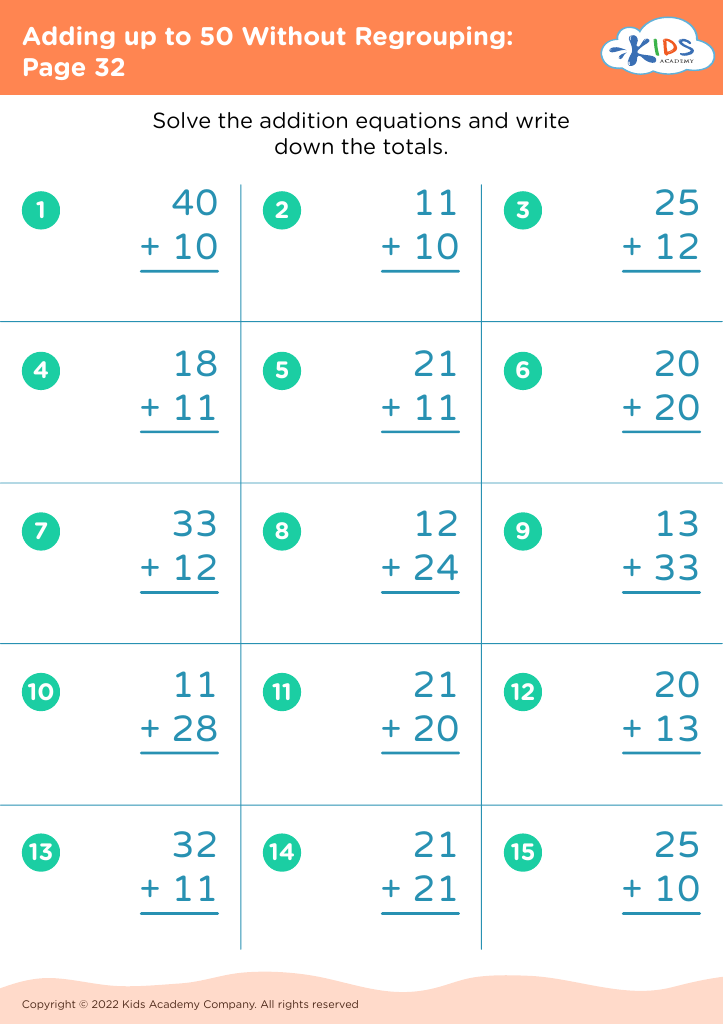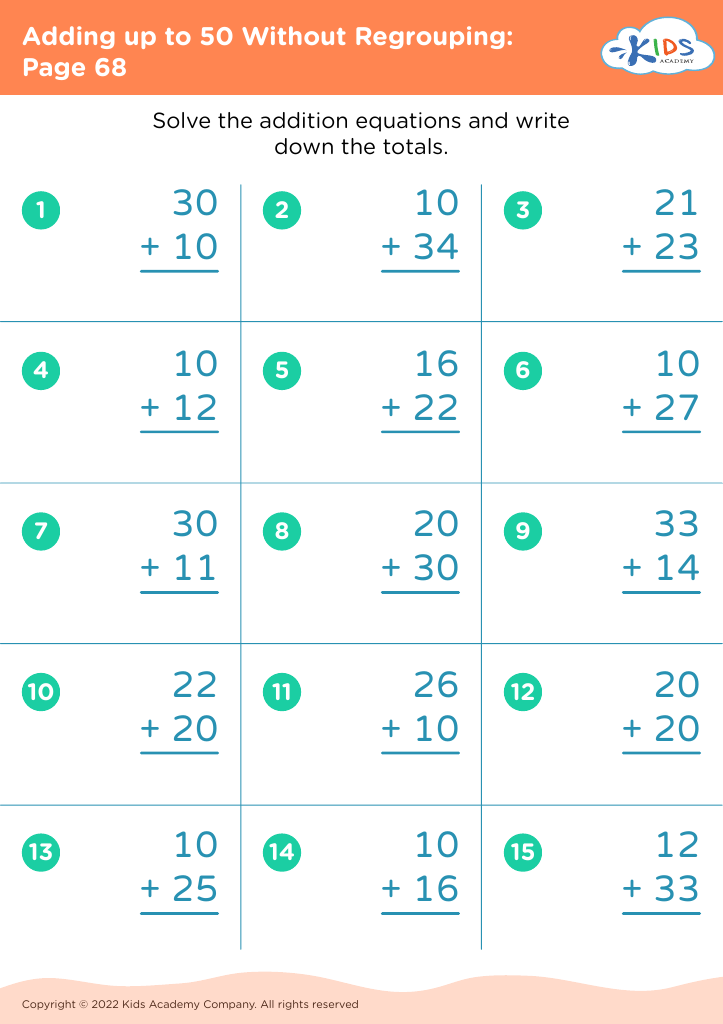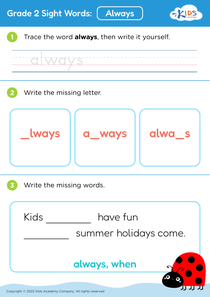Basic Addition Skills Grade 2 Addition Worksheets
18 filtered results
-
From - To
Enhance your second grader's math skills with our engaging Basic Addition Skills worksheets! Designed for young learners, these printable resources focus on developing foundational addition abilities, perfect for independent practice or guided learning. Our worksheets include a variety of fun exercises, from simple problems to word problems, helping students master key concepts essential for their academic growth. Each worksheet is aligned with grade-level standards, ensuring your child builds confidence and proficiency in addition. Foster a love for math while making learning enjoyable—download our Basic Addition Skills worksheets today and watch your child excel in mathematics!
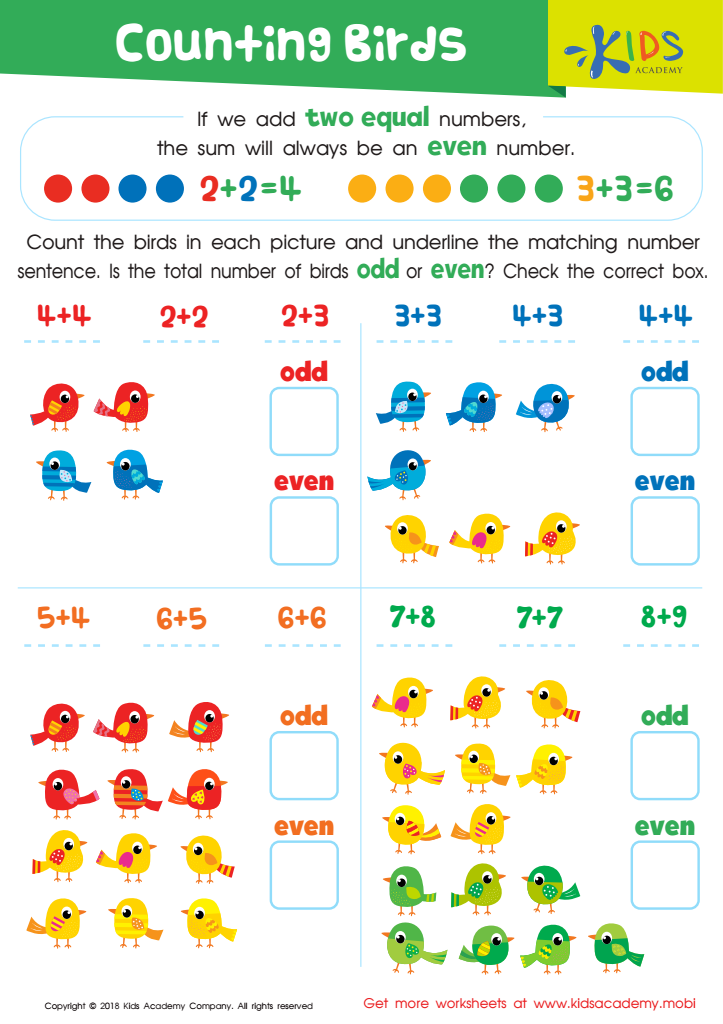

Counting Birds Worksheet
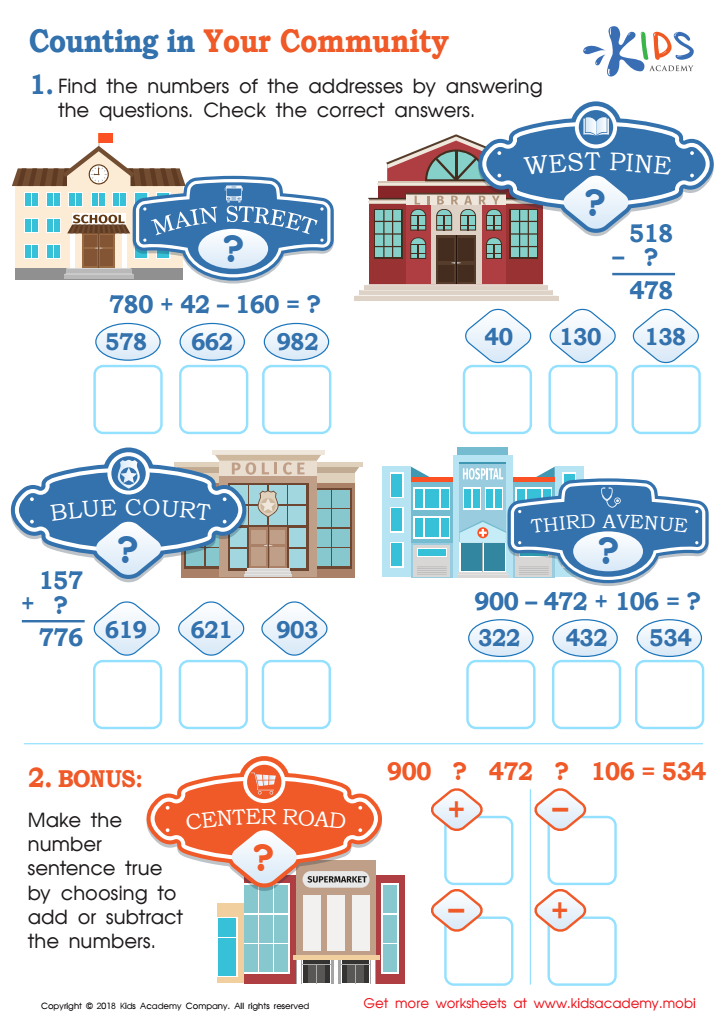

Counting in Your Community Worksheet
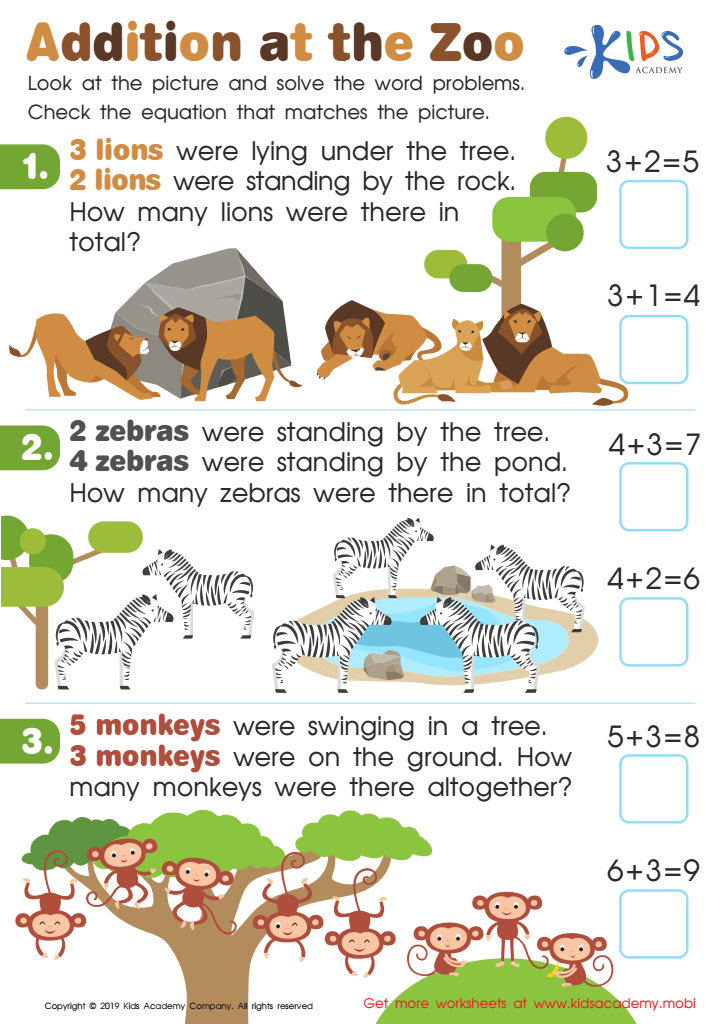

Addition at the Zoo Worksheet
Basic addition skills are foundational for academic success and everyday problem-solving, making it essential for parents and teachers to prioritize Grade 2 addition. At this stage, students are transitioning from concrete to abstract thinking, and mastering addition sets the groundwork for more advanced mathematical concepts such as subtraction, multiplication, and even division later on. Proficiency in addition helps boost children's confidence in their mathematical abilities and promotes a positive attitude towards learning.
Additionally, strong addition skills aid in developing critical thinking and logical reasoning. Children learn to relate numbers and quantities, which enhances their understanding of the world around them — from understanding money and time to participating in activities like baking or sports. Furthermore, when parents and teachers actively support young learners in mastering addition, it fosters a collaborative learning environment that strengthens family engagement and encourages persistence in overcoming challenges.
Lastly, basic addition proficiency can dramatically improve performance in assessments and state testing, influencing overall academic progress. By ensuring that students have a firm grasp of addition, parents and teachers set them on a path for lifelong learning and success, making it a priority in the early educational stages.
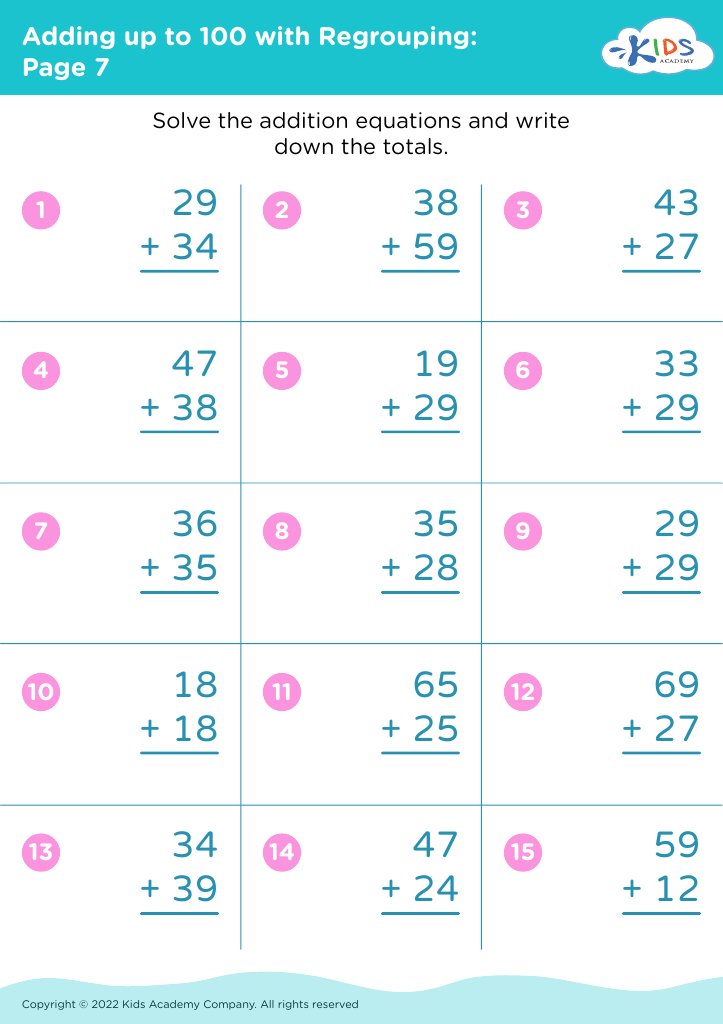
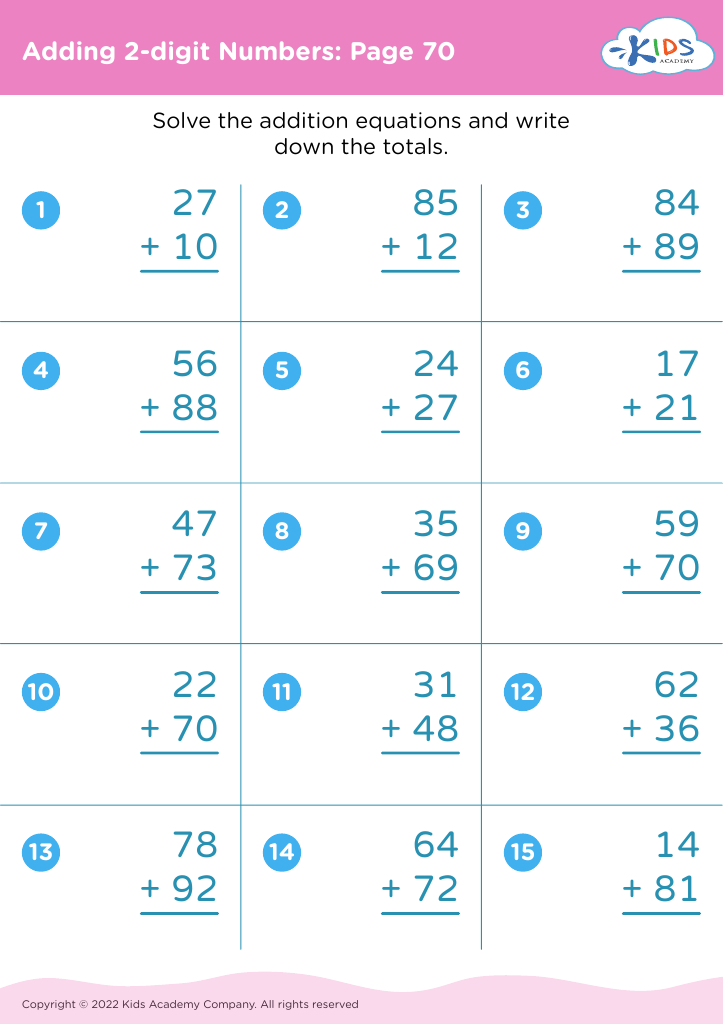
 Assign to My Students
Assign to My Students

